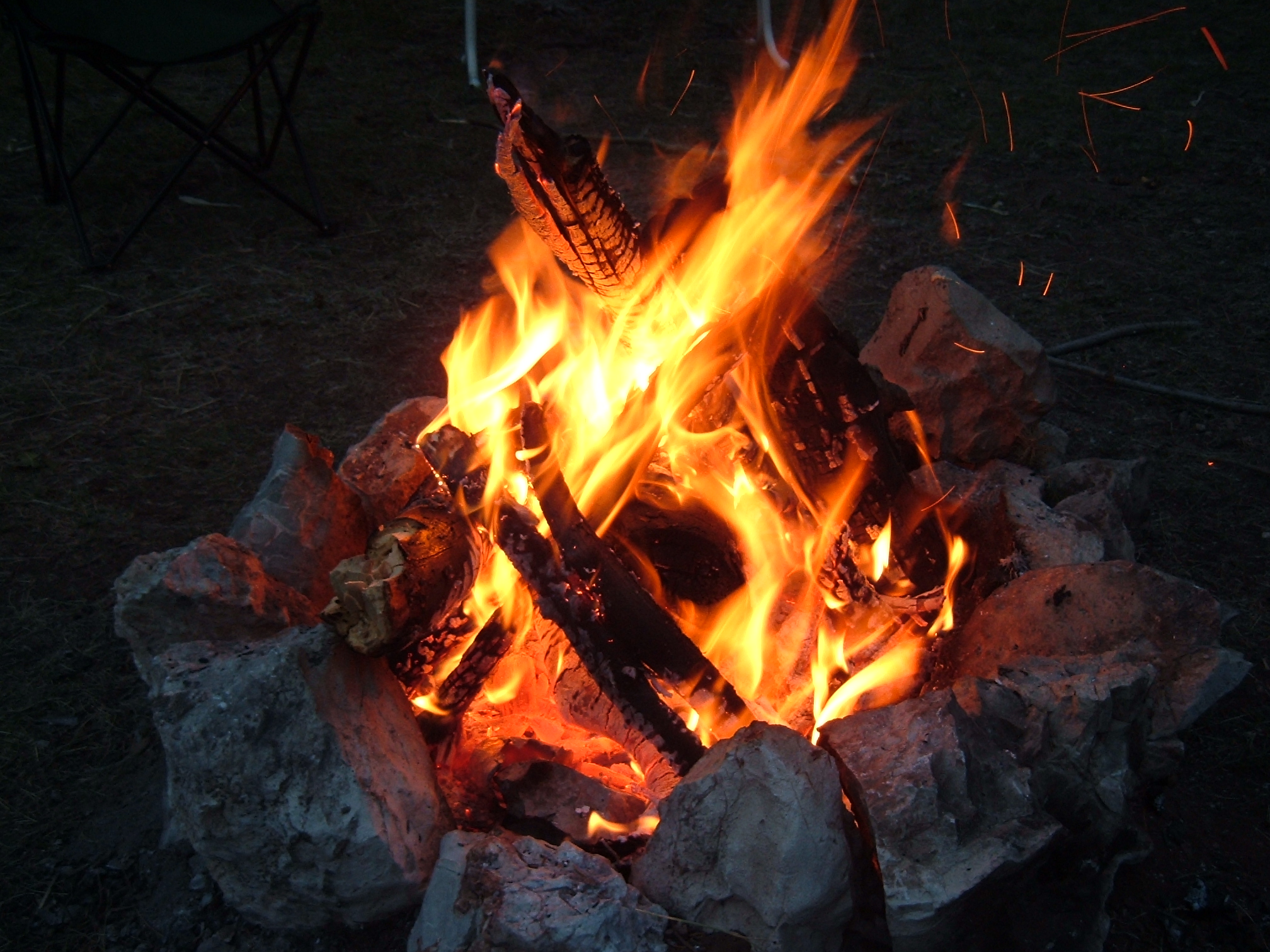 As fire season continues, it’s good to take a moment and review some fire safety tips for both in the home and while outdoors. Having the basic knowledge may help prevent a home fire or a wildfire.
As fire season continues, it’s good to take a moment and review some fire safety tips for both in the home and while outdoors. Having the basic knowledge may help prevent a home fire or a wildfire.
Outdoors
Below are 3 steps to follow when you have a fire outdoors:

- Picking Your Campfire Spot: Be sure you follow any rules or regulations if planning to build a pit in a campground. Ensure you pick a level spot and you are approximately 10-15 feet away from anything that could catch fire. This includes low hanging branches, trees/shrubs, and your own gear. Take the weather into account as well, for example if there will be high wind and which direction it’s going in. Make sure rocks line the pit so your fire stays within the boarder.
- While You Maintain Your Fire: Once your fire is going, do not add dangerous items such as aerosol cans, pressurized containers or aluminum cans. This items could explode, cause harmful fumes or shatter. Keep your fire at a manageable size. If it gets too large it could easily become out of hand with no way to put it out on your own. Also, always watch it. This is especially true if there are pets or children nearby. As a safety precaution, always have water close by.
- Extinguishing Your Fire: If possible, let you fire burn down to ash. Then, pour water over all the embers, not just the red ones, until the hissing sounds spots. You could also put dirt or sand over the fire, if water isn’t available. Continue adding the water or dirt/sand, stirring around with a shovel, until everything is cool. Never walk away or go to bed when your fire is still warm.
General Safety Tips to Help Prevent a Wildfire:

- Be careful while camping and using & fueling fueling lanterns, stoves, and heaters. Make sure it’s cool before refueling. Do your best not to spill flammable liquids and store appropriately.
- Do not dispose of your cigarettes, matches or any smoking material out of a moving vehicle or anywhere near an area that could catch fire. Always put your cigarette out before disposing of it.
- When burning yard waste, avoid burning in windy conditions. Have a shovel, water and fire retardant nearby and avoid all flammable materials from your yard. Follow all fire rules, such as not letting the fire get out of hand, ALWAYS keep an eye on it and put it out completely before walking away.
- If you notice an unattended or out of control fire, contact your local fire department or 9-1-1.
- If using fireworks, consider wetting down the grass and surrounding areas before lighting them. Always have a bucket of water, garden hose or fire extinguisher ready nearby. Avoid lighting fireworks on a windy night.
At Home
Below is 6 ways to prevent a fire in your home and help to avoid injury:
- Smoke Alarms: Be sure you have the correct number of smoke alarms installed in your home. Test them once a month to ensure they are still is working order. Have spare batteries in your home so if the batteries die, you can replace them right away. Replace them at least once a year. Learn more about smoke alarms by clicking here, such as how many and where to install in your home.
- Fire Extinguishers: They are a good idea to have to put out a small fire in your home or garage. Go over the 5 different types of fire extinguishers to be sure you have the correct one. Be sure your fire extinguisher is checked and tested regularly by a professional. Also, make sure you know how to use the fire extinguisher by following the P.A.S.S. rule below:
- Pull the pin. Hold the extinguisher with the nozzle pointing away from you and release the locking mechanism.
- Aim low. Point the extinguisher at the base of the fire.
- Squeeze the lever slowly and evenly.
- Sweep the nozzle from side-to-side.
- Teach Your Children the Basics: Don’t let them play with matches, candles or fire and teach them that it can be dangerous. Show your child what the smoke alarm sounds like and what to do when one goes off. If your child is old enough teach them not to touch a door knob if it’s hot, how to stop drop & roll, to crawl on the ground when they see smoke, and not to hide under a bed or in a closet if there is a fire. And if you have the opportunity, go to a fire station and have them meet a firefighter so they can be familiar with what they do and their gear.

- Create A Fire Escape Plan: Draw your home’s floor plan that shows all the windows & doors. Make a plan of escape and go over it with your family, be sure there are at least 2 ways to get out of ever room, if possible. Have a spot you meet your family once outside. And be sure to practice the plan at least twice a year. Click here for a printable sheet to draw out your escape.
- Create A Family Emergency Communication Plan: Be sure every family member knows who to contact in case they can not find one another. This goes for any type of emergency, not just a fire. Also, be sure everybody know how to properly use 9-1-1.
- Stay Safe When Grilling: Do not use your grill unless it’s away from siding, decking or anything that could catch fire. Make sure your children and pets remain at least 3 feet away from the grill when it’s in use. Always stay with your grill when using it and clean it regularly.
Although it’s impossible to guarantee a fire will never get started in your home or your camp fire never gets out of hand, taking the precautions and steps above can help avoid it from happening. Always stay safe!
Credit: American Red Cross, Safety.com, U.S. Fire Administration, SmokeyBear, Active.com, FEMA, National Geographic
 Facebook
Facebook
 X
X
 Pinterest
Pinterest
 Copy Link
Copy Link

